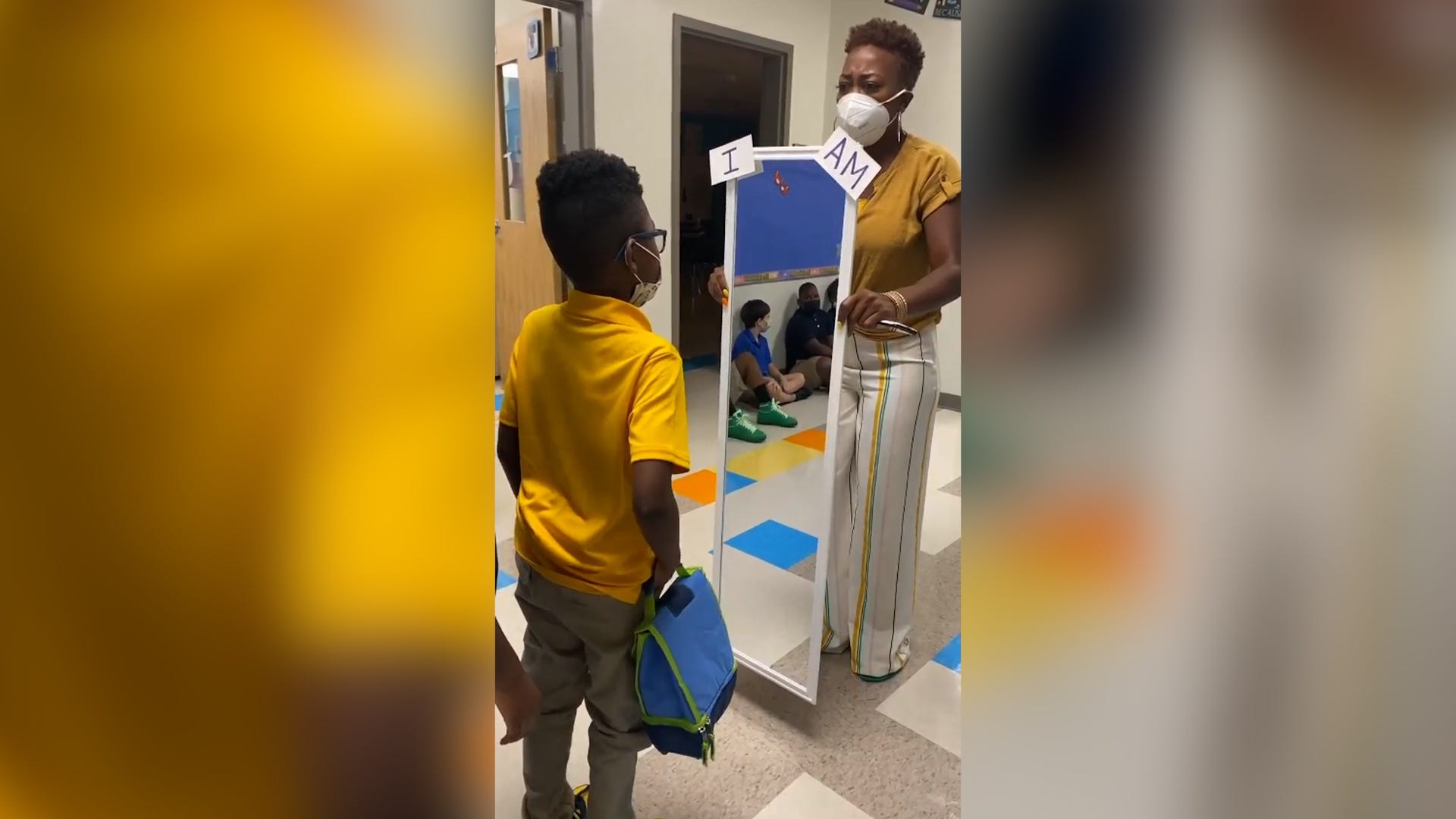If you had a teacher who changed your life, 'find that person, tell that person' | Opinion
Why former Education Secretary John B. King wrote his memoir, and how we can attract talented people to teach the next generation.

If you Google Teacher Appreciation Week, you’ll discover an endless supply of gift ideas ‒ but teacher frustration and teacher shortages suggest that Starbucks gift cards and mugs full of candy probably aren’t enough to make teachers feel appreciated.
I recently asked John B. King ‒ a former U.S. Education secretary, current chancellor of the State University of New York and author of "Teacher by Teacher: The People Who Change Our Lives" ‒ what he thought might show teachers enough appreciation to help stem the exodus and attract enough young and talented people to teach the next generation. He said, without hesitation, that we need to pay more, especially to new teachers, and create better working conditions.
He didn’t just mean smaller class size and more administrative support. Those willing to dedicate ourselves to educating other people’s children need the resources to do it ‒ including access to field trips.
John, 50, still vividly recalls a fourth grade field trip to the American Museum of Natural History in New York City and how Mr. Alan Osterweil opened up the world to him and helped him through his trauma and grief.
It is why so much of King’s new memoir is dedicated to the teachers who made a difference for him.
For a child on his own, 'a great teacher is the only hope'
John lost his mother, a school counselor, when he was 8. His father, New York City’s first Black deputy school superintendent, was by then in his 70s and in physical and mental decline. Sometimes volatile, otherwise disengaged, John B. King Sr.'s deteriorating condition compelled John Jr. to become his caretaker.
By age 11, John was paying bills, buying food and was pretty much on his own ‒ and profoundly alone, except for the guidance and inspiration of the teachers who helped him to love learning, believe in himself and his future, and feel a connection to the world.
John managed to overcome a shattered young life of instability and achieved personal excellence and a long list of accomplishments as proof of his own strength. But John isn’t interested in self-made man status. He knows as well as anyone that making a country great is always about raising the next generation, that nurturing children ‒ intellectually, emotionally and spiritually ‒ is a group effort, and that for some children, as he puts it, “a great teacher is the only hope.”
Another great teacher, Celestine DeSaussure ‒ whom he affectionately calls Miss D, was there for him when he started junior high in a new neighborhood. Her love of learning and encouragement helped John continue to feel at home in class when there was no other real home in his heart. She helped him continue to develop as a thinker with a passion for justice and confidence in his spoken and written voice.
When his father died in 1987, John wound up with an older half-brother and a different kind of instability. Despite the shock of suddenly being, as he puts it, “the only black guy” in the class at Smithtown West High School on Long Island, school remained his oasis.
He attended two more high schools before ascending to Harvard ‒ a rather spectacular climax to an agonizingly nomadic childhood, grounded only by school success and a love of learning, instilled in him by his mother and nurtured by a few great teachers.
Bittersweet melding of history and emotional memory
John's book inception came about after his family journeyed in 2019 to a plantation on which his ancestors had been enslaved in Maryland. It was the subject of a feature story in The Washington Post and is now, in John’s own voice, the final chapter of "Teacher by Teacher."
Six years later, that story offers a powerful critique of attempts to suppress history. When the Kings approached the Beckers, whose ancestors had enslaved the Kings, the Beckers were receptive to the reunion and made no attempt to revise the ugly past that awkwardly and painfully tied them together.
It is a perfect ending to John’s memoir, a bittersweet melding of history and emotional memory, an affirmation of identity and recognition of the bottomless agony, but also hope in the future ‒ for all of us.
Perfect also because the journey came about from a fascination with history instilled in John by Mr. Osterweil, Miss D and all the other influential teachers in his life.
My 10th grade students will be reading this chapter as part of a writing project this month, forever connecting my own teaching and the lives of my students ‒ here in Los Angeles ‒ to the legacy of John’s teachers and to his family and his life.
No reason teachers can’t also celebrate Teacher Appreciation Week.
John said that if you ever had a teacher who made a difference, “find that person, tell that person.”
He recalled his father’s wake, and how a man in his 50s came to pay his respect and spoke “reverently” about the lasting impact John B. King Sr. had on him.
“I’m sure,” John said, “he wished he’d told those things to my father.”
Larry Strauss, a high school English teacher in South Los Angeles since 1992, is the author of “Students First and Other Lies: Straight Talk From a Veteran Teacher” and "A Lasting Impact in the Classroom and Beyond," a book for new and struggling teachers, due out in June.